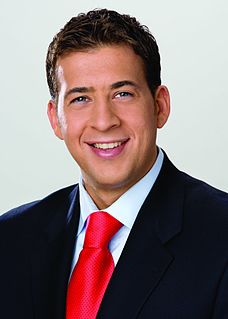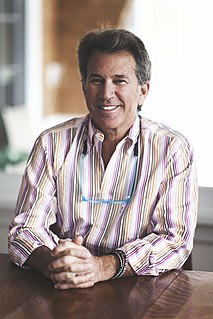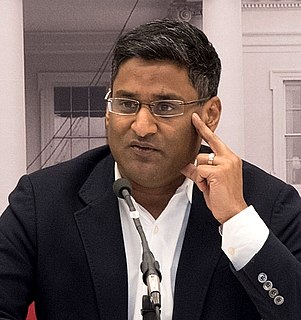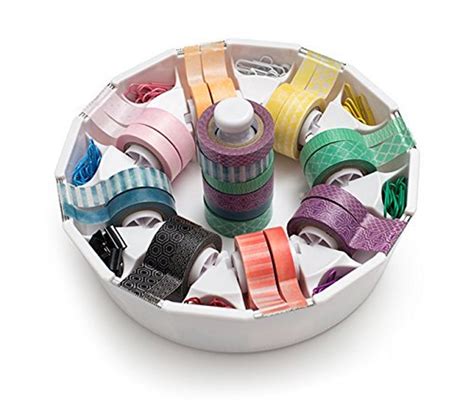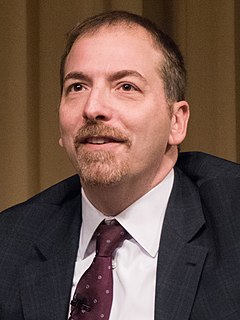A Quote by Larry Page
You’re going to have some very amazing capabilities in the economy. When we have computers that can do more and more jobs, it’s going to change how we think about work. There’s no way around that. You can’t wish it away.
Related Quotes
I think the work on tax reform, the work that's being done on regulatory reform is very important. And just having a seat at the table, I think, is so important for business today as we think about what's going to benefit the economy of this country, how we're going to create great manufacturing jobs.
My experience to date has been that change, particularly relative to business, rarely happens in a revolutionary way. That isn't to say there are not times when major change happens, but my experience is that particularly when you're encouraging businesses to change of their own volition, the change is more slow over time. I don't think global trade is going to go away. I think it's unlikely that global trade and multinationals are not going to be around.
I think the Republicans starting more and more to ignore President Trump. I think they have realized - it's taken a while, but I think a lot of them have realized there isn't going to be a change, he is who he is, there's not going to be some pivot or some growing in office, and they have to deal with that. I don't think they have come together to figure out how exactly they move forward, but I think they are at least beginning to get a grip on the problem.
A carbon tax by itself would make driving more expensive, that's very true. But in exchange for that, there are going to be more jobs, more output, more employment, and more products available. So really, as long as you're going to collect the revenues you're going to collect, you're going to have to trade off one tax for the other.
We're foolish if we think we're going to end mass incarceration unless we are willing to deal with the reality that huge percentages of poor people are going to remain jobless, locked out of the mainstream economy, unless and until they have a quality education that prepares them well for the new economy. There has got to be much more collaboration between the two movements and a greater appreciation for the work of the advocates in each community. It's got to be a movement that's about education, not incarceration - about jobs, not jails.
I think there are some mass destruction capabilities that are still inside Iraq. I think there's some weapons that have been shipped over the border to Syria. But I don't think we're going to find that their capabilities provided the imminent threat that many feared in this country. So I think it's going to be a tough search, but I think there's stuff there.
I think we're going to care more about Americans than Africans. I don't think that's ever going to go away, and I don't think it's ever going to go away that people care more about their families than strangers, and their communities over other communities. But I think it would transform the world in such a good way if we could just acknowledge, at least intellectually, that an African life and an American life are the same.
Fundamentally, as human beings, we're very, very alike and a lot more alike than we think, but we have a tendency to divide the world into them and us. In prison, when people commit a crime and we put them away, they definitely become "them." We don't want to deal with it because they have chosen to step out of society, so we're going to keep them out. Even if they serve their time, we're going to make sure that, for the rest of their lives, they're going to be branded. I don't know how to do it in a different way, but I think it clearly doesn't work.
Theaters are always going to be around, and doing fine. With computers and technology, we're becoming more and more secluded from each other. And the movie theater is one of the last places where we can still gather and experience something together. I don't think the desire for that magic will ever go away.
As champions of green jobs, we're asking questions that progressives should like, like "How are we going to avoid baking the planet," and "How are we going to create jobs for ordinary Americans?" Meanwhile, we're offering solutions that conservative should like. I'm not calling for more welfare; I'm calling for more work.
I think there are basically two kinds of musicians: some are extroverted and some are introverted. I think extroverted musicians are more in the entertainer kind of camp, which is just as valid, but you're going to be more apt to make music that is of the moment - whereas if you're coming from a more introverted place, the music is going to end up being more about the past or more personal. It's not going to be about the people in the room, per se.
Here's why I think the public service jobs are almost unavoidable: When we have downturns in the economy - and we will, for we haven't repealed the business cycle - unemployment will build, yet we no longer have any safety net. What are we going to do? Unless we decide to pull out all the stops and lower interest rates immediately and risk turning a recession into wild inflation, we're going to have to figure out some way of providing some more, not job security, but employment security.
There's no way you are going to get rid of the Second Amendment, there's no way you're going to get rid of the First Amendment, and people have to understand how important this is. But I think when they see more and more killings, we have to figure out, of course what we are going to do about it. And I don't think the criminal justice system has an answer.


